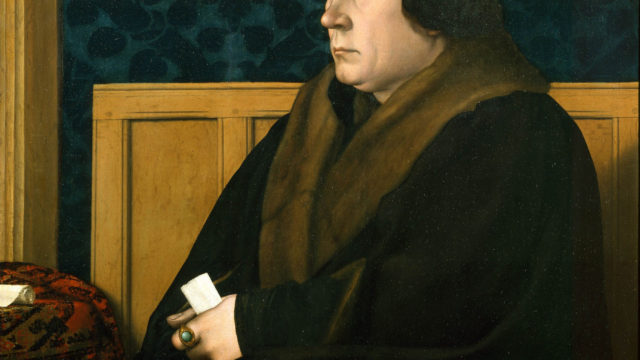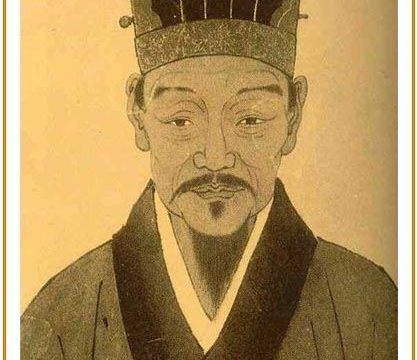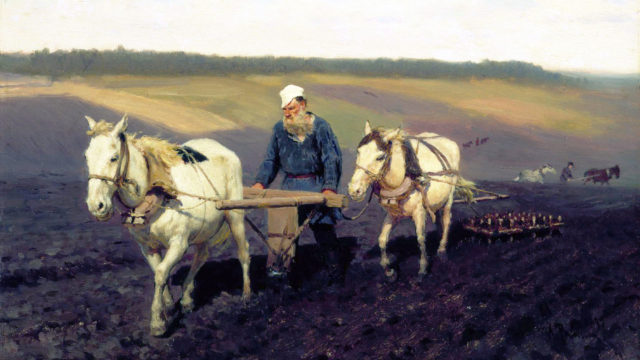Maugham Summing Up
2015年2月16日 月曜日
オーディオブックで WSモームの The Summing Up を聴了。
一昨年 2013年の春夏に久しぶりにモームの代表的作品のいくつかを読み返した。 Of Human Bondage, The Moon and Sixpence, The Razor’s Edge, Painted Veil, Liza in Lambeth, などなど。
この冬は The Summing Up からスタートすることになった。モームの自伝的小説が Of Human Bondage だとすれば、The Summing Up は、自伝的エッセイ集といった感じ。演劇や小説を中心に文芸評論にもなっているし、宗教に関しても考察され、実践人生論哲学も語られる。
モームのこの The Summing Up は、作家の晩年に書かれたものだと思う。高校時代16歳の私は、モームが Of Human Bondage や The Summing Up の中で語るどことなくシニカルな斜に構えたような人生論に対してストレートには賛同しきれなかったものである。しかし、今こうして40年以上も歳月を隔てて読み返してみて、モームの深みがあって温かい率直な気持ちの表出をとてもありがたいものとして受け止めている。読み終えたとたんに、あるいは読んでいる途中ですでに、時期をみてもう一度読み返してみたいと思っている本。特に今回は、紙の本を持っていなくて、ダウンロードしたオーディオブックの音声だけで聴いたので、やや心許ない。よって、近日中に紙の本も手に入れて、折に触れて開いてみたいと思っている。
*****
Of Human Bondage で描かれた思想が、今回はエッセイの中でもう一度語られる。オーディオブックの Section 67(紙の本の Chapter 66) など。以下は、オーディオブックの最後の1時間半ばかり、第66章から77章ぐらいまでをキーボードに向かってリアルタイムでノートをとってみたものである。もとより、私のヒアリング能力とタイピング技能では片言の単語記録になってしまう。これはやむを得ない。備忘録的役割。
*****
Chapter 66
Expression of myself
Coherent
My instinct
My ignorance
実践哲学(行動指針のようなもの)
アナトール・フランスの「王様と人類歴史の逸話」(歴史の書物、大冊から一行へ要約)
*****
Chapter 69 (Section 70)
God: 宇宙の創造者 Creator of the universe
existence of God; presence of God
religion
mystics; mysticism
ecstacy of mystics
remains a great mystery
Brahman of Upanishad
agnostisism: God does not exist
*****
Chapter 70
Life after death, immortality
Incompleteness of life
Consciousness, migration of consciousness
spiritual fullfillment
philosophers
*****
Chapter 71
What I am here for?
Life has no meaning.
What difference?
egoism
self-assertion
end of human activity
self-realization (Goethe)
no-one-else’s self-realization
moralist, sacrifice
*****
Chapter 72
pattern of life
free will
determinism, determinist
rigid determination
cause and effect
physicists, Heisenberg, Einstein
*****
Chapter 73
life worth living
pessimism
imagination
no explanation for evil
I am not a pessimist.
I have been glad to live.
adapt myself
thought of suicide
of his own will
suffering of life
write for amusement of myself and amusement of my readers
look forward to old life without dismay
perfect life include old age
pleasure of youth
extinction of desire
old age has more time
the taste improves
without personal bias
free of lust
it has completed the pattern
Goethe limited himself more carefully
no need for future life
*****
Chapter 74
Spinoza
I dramatize them
measurable distance of death
future is so short
final and abosolute freedom
tolerable health
continual food for reflection
senselessness of life
certain design
pattern
perfect life will be perfectly realized
*****
Chapter 75
egoism of man
he escapes from human bondage
his journey
three values
truth
beauty
goodness (love)
wisdom of ages
make belief
*****
Chapter 76
beauty
beauty alone as meaning in life
final justification for misery, — in life
it is still beauty I still value
tired of passive contemplation
museum, now worthless
my own judgement
beauty, relative
absolute beauty, futile
esthetics, emotion of beauty
sexual instinct
body mind
attractive to man, physiological
remind us of —
novelty
esthtic emotion
time, creation of beauty
esthetic value
Keats
complicated one
picture, symphony
mystic rupture
great work of art
Meistersingen
liberation from human ties
mystics, union with God
pleasure
J. Bentham
mystics, rupture, works
create art, enjoy art
the value of art
full of inevitable evils
humility, tolerance, wisdom, magnanimity
art
beauty of nature
justification of human existance
art is living
*****
Chapter 77
goodness
love
pure and simple, sexual love
loving kindness (Maugham), heavenly love (Plato)
affection
comfort rather than exilarattion
burden
love is not always blind
unworthy of love
defect of love
it is like dancing
loving kindness
better part of goodness
virtue
homage
real goodness
my mother, her death
look from a distance
lacking reality
shadowy
God, immortality, mortality
extenuation
indifferent universe
affirmation of our independence
perfect without being tedious
right action, in meaningless life
Plato
turmoil of practical affairs
right action?
*****
単語の意味など、補注:
Chapter 69
Brahman of Upanishad: http://en.wikipedia.org/wiki/Upanishads など参照。
Chapter 71
self-assertion http://www.thefreedictionary.com/self-assertion
Noun 1. self-assertion – the act of putting forth your own opinions in a boastful or inconsiderate manner that implies you feel superior to others
2. self-assertion – the act of asserting yourself in an aggressive manner
assert 自信をもって物事を断言する 強く主張する
*****
Chapter 76
beauty alone as meaning in life: HH補注: モームは、その前半生においては強い唯美主義者。Of Human Bondage のパリ時代、月と6ペンスの主人公の画家の生き方などに明確に描かれている。
Jeremy Bentham http://ja.wikipedia.org/wiki/ジェレミ・ベンサムなど参照。人物: 功利主義の立場から自然法を批判的に論じた。法典化を推奨し、後世の国際法学に影響を与えた。英単語のcodify(法典化する)もinternational(国際的な)も彼の造語である。他にも、maximizeやminimizeなどの多数の造語は、既存の用語による先入観をできるだけ排除して新たな方法論を記述するための努力の結晶といえる。 彼の名前は、日本では「ベンサム」と表記発音され英語圏でも[ˡbenθəm]と発音されるのが一般的だが、語源から言えば古英語のbeonet(コヌカグサ)とham(村落)に由来するため 、tとhをつなげて読まずに[ˡbentəm]と発音する方が本来は正しいとされている
、tとhをつなげて読まずに[ˡbentəm]と発音する方が本来は正しいとされている 。日本でも特に法律学者は伝統的にベンタムと表記することが多いようである
。日本でも特に法律学者は伝統的にベンタムと表記することが多いようである 。これには強力な異論もある
。これには強力な異論もある 。本項では一般的なベンサムという読みを採用する。以上は、http://ja.wikipedia.org/wiki/ジェレミ・ベンサムから引用。
。本項では一般的なベンサムという読みを採用する。以上は、http://ja.wikipedia.org/wiki/ジェレミ・ベンサムから引用。
Keats 私の聞き間違いでなければ詩人のキーツのことだと思う。John Keats (/ˈkiːts/; 31 October 1795 – 23 February 1821) was an English Romantic poet. He was one of the main figures of the second generation of Romantic poets along with Lord Byron and Percy Bysshe Shelley despite his work having been in publication for only four years before his death. 以上は、http://en.wikipedia.org/wiki/John_Keats から引用。
以上は、http://en.wikipedia.org/wiki/John_Keats から引用。
magnanimity n 度量の大きいこと 寛大さ ウィキペディアによると以下の通り http://en.wikipedia.org/wiki/Magnanimity :
Magnanimity (derived from the Latin roots magna great, and animus, mind, literally means greatly generous) is the virtue of being great of mind and heart. It encompasses, usually, a refusal to be petty, a willingness to face danger, and actions for noble purposes. Its antithesis is pusillanimity. Magnanimity is a latinization of the Greek word megalopsuchia which means greatness of soul and was identified by Aristotle as “the crowning virtue”. Although the word magnanimity has a traditional connection to Aristotelian philosophy, it also has its own tradition in English which now causes some confusion.
Noah Webster of the American Language defines Magnanimity as such: MAGNANIMITY, n. [L. magnanimitas; magnus, great, and animus, mind.] Greatness of mind; that elevation or dignity of soul, which encounters danger and trouble with tranquility and firmness, which raises the possessor above revenge, and makes him delight in acts of benevolence, which makes him disdain injustice and meanness, and prompts him to sacrifice personal ease, interest and safety for the accomplishment of useful and noble objects.
Chapter 77
extenuate vt 情状酌量して軽減する extenuation n 情状酌量
*****
**********





